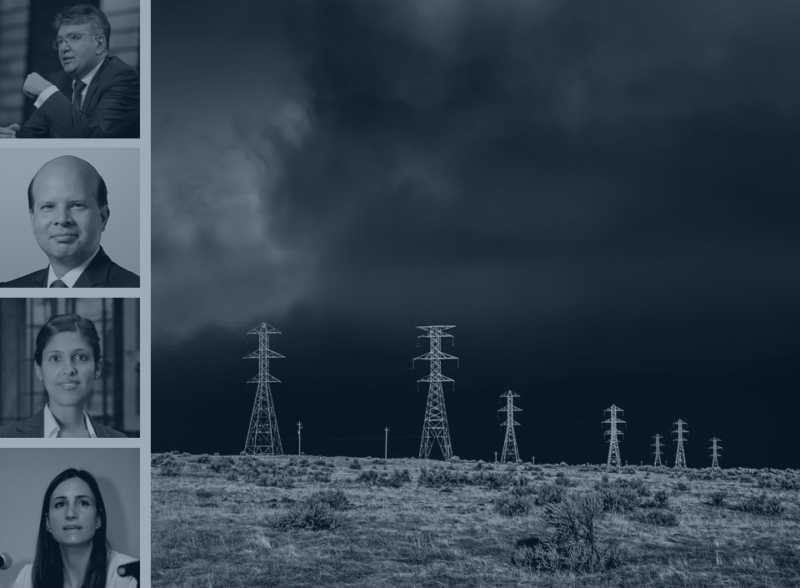Is Latin America Ready to Cope with Climate Change?
As global temperatures continue to rise with the global community stalled on any way to stop them, countries must prepare to adapt to increasingly volatile environmental conditions.
The recent oil price collapse, combined with the economic contraction resulting from measures to fight the global Covid-19 pandemic, will have extensive and largely unforetold impacts for Latin American energy markets and beyond. These implications include cuts to investment and delays to ongoing projects in both oil & gas and renewable energy, fiscal and broader economic constraints, and legal disputes, said panelists during a webinar held on April 1.
Mauricio Cárdenas, former Colombian finance and energy minister and visiting senior researcher at the Columbia University Center on Global Energy Policy, laid out the consequences of the present situation for Latin American economies. In Venezuela, where production was already heavily constrained by US sanctions, a further decline will lead to even graver cash restrictions. In Ecuador, already in a desperate fiscal bind to comply with an IMF program, a $10 decline in oil prices leads to a loss of about 1 percent of GDP in fiscal revenues. Colombia and Brazil will also suffer, though to a lesser degree, losing 2-2.5 percent of GDP based on current oil prices due to budgets that estimated a price up to $40 higher. These countries will be losing revenue at a time when Covid-19’s disastrous economic effects require a stimulus response. Countries with more fiscal breathing room like Colombia will be in a better position. Argentina, which is less dependent on oil revenues than many of its regional peers, may be more concerned about the prices of other commodities such as soybeans. Upstream investment across the region will also be reduced this year, with cuts of 30 percent and 25 percent already announced by Petrobras and Ecopetrol, respectively. Longer-term, the region’s total oil production growth will likely be lower than previously expected. On the other hand, consumers may benefit to a degree from lower fuel prices, especially in Peru and Chile due to their liberalized prices. In other economies with greater government control over prices, these benefits may take longer to trickle down.
José Zapata, a partner at Holland & Knight in Colombia, discussed the difficulty of separating the effects of Covid-19 from those of low oil prices in addressing the multitude of force majeure claims for energy projects. Different jurisdictions have addressed this differently. Colombia and Peru are aligned in how to balance investor protection and respect for the rule of law during the crisis, whereas Covid-19 response measures have only recently kicked in in Mexico. This has legal impacts for cross-border energy projects. Zapata emphasized the great uncertainty in how these scenarios will play out from a regulatory, contractual, and legal standpoint, pointing out that if all projects are in force majeure, nothing will move forward, which will only aggravate a situation in which continued supply of energy and fuel is needed. Court decisions will be crucial and ultimately have the final say in force majeure debates, and litigation will extend beyond the crisis as the negative effects of regulations, which could not have been foreseen, materialize.
Project delays have dominated the discussion in Brazil as well, said Camila Ramos, managing director of CELA - Clean Energy Latin America in São Paulo. Social distancing measures have reduced power demand by up to 17 percent depending on the day, and further declines are expected in April and May. This has led to the indefinite postponement of all 2020 power supply auctions, which usually contract 2.5-4 GW of new wind and solar installed capacity. Demand for distributed generation projects has already been hit. Supply chains have also been disrupted, especially the market for solar panels from China last month, and a less favorable exchange rate due to a weakened real will raise the cost of capital, especially for solar PV projects, whose components are largely imported. The biofuel industry, which competes directly with gasoline in Brazil, will be the clean energy sector hardest hit by low oil prices.
As Latin America grapples with this crisis, its response will include major stimulus measures and other reforms. Overall, though these measures have not yet and may not include an explicit focus on renewable energy, developers could still benefit from broader stimulus, said panelists. Additionally, panelists expected that, despite a need to promote investment in Covid-19’s aftermath, governments would not relax social and environmental regulations, which are seen as important to the public acceptance and ultimate success of projects. In fact, the crisis could be seen as an opportunity in the sense that its response can encompass much-needed reforms.
How the oil price rout will shape LatAm energy markets (April 1, 2020 – BNamericas)
Concerns mount about pandemic's impact on Mexico energy projects (April 7, 2020 – BNamericas)
An Uncertain Energy Future (April 17, 2020 – Energy and Climate Partnership of the Americas)
Un futuro energético incierto (17 de abril de 2020 – Alianza de Energía y Clima de las Américas)
As global temperatures continue to rise with the global community stalled on any way to stop them, countries must prepare to adapt to increasingly volatile environmental conditions.
Will Cuba be able to safely regulate its oil industry?
As the global financial crisis continues to alter US relations with the hemisphere, greater engagement in the region remains critical to US interests.
 Main Photo: PxHere / CC0
Main Photo: PxHere / CC0